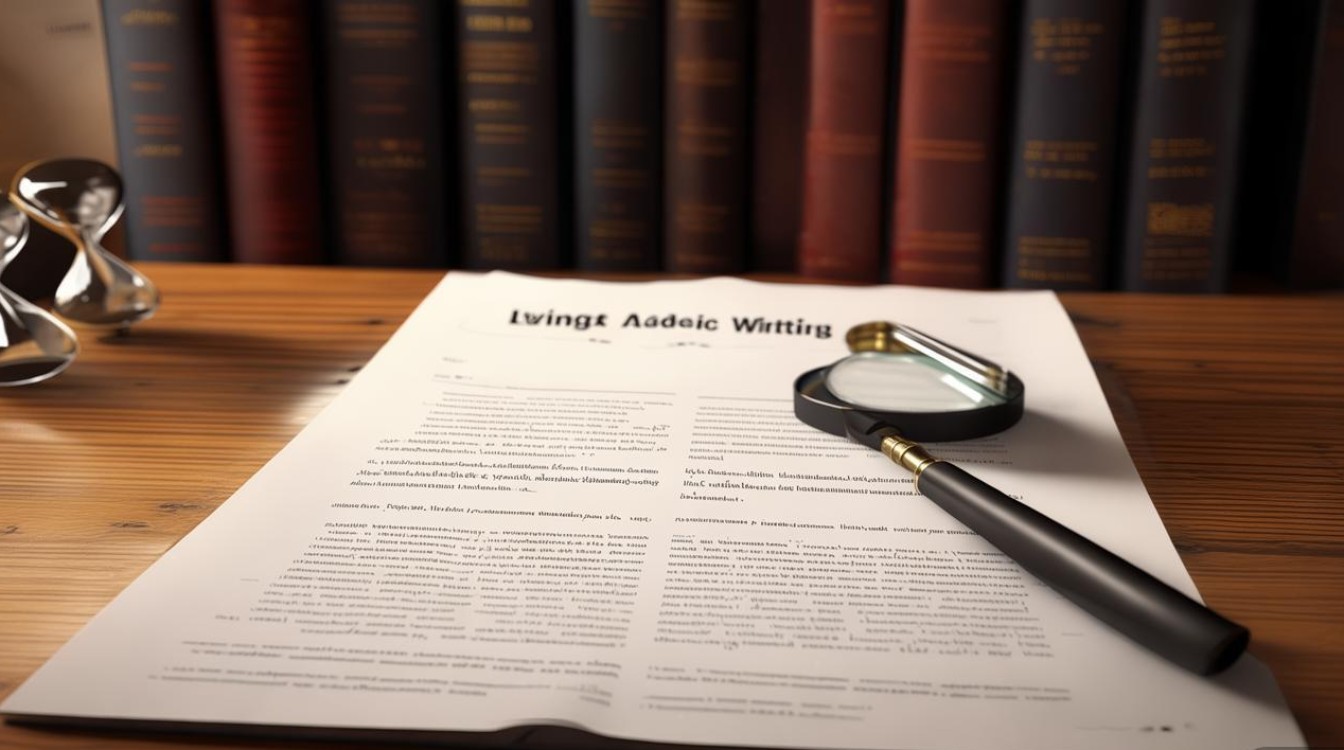下面我将为你提供一个全面的雅思写作备考方案,包括:

- 核心观点与论证思路
- 高分词汇与短语
- 不同题目的范文示例
- 备考建议
核心观点与论证思路
在讨论“撒谎”这个话题时,关键在于避免绝对化,完全否定或完全肯定撒谎都显得不够辩证,一个高分的策略是承认撒谎在多数情况下是错误的,但在特定情境下,它可能是一种必要的、甚至是善意的保护。
正方观点:撒谎在绝大多数情况下是错误的
-
论点1: 破坏信任
- 论证: 人际关系的基石是信任,一旦谎言被揭穿,信任就会崩塌,且极难修复,无论是家庭、朋友还是商业伙伴,信任的缺失都会导致关系破裂。
- 例子: 伴侣之间的不忠谎言会导致离婚;朋友间的欺骗会终结友谊。
-
论点2: 导致负面后果
- 论证: 谎言像滚雪球,为了掩盖一个谎言,往往需要更多的谎言来支撑,最终可能导致无法收拾的局面,谎言会误导他人做出错误的判断。
- 例子: 医生对病人隐瞒真实病情,可能会延误最佳治疗时机;员工向老板撒谎项目进度,可能导致公司重大损失。
-
论点3: 违背道德原则
- 论证: 从哲学和伦理学角度看,诚实是一种基本美德,撒谎本身就是一种不尊重他人的行为,它剥夺了他人了解真相、基于真相做出选择的权利。
- 例子: 即使是为了“善意”,对朋友撒谎也意味着你认为对方无法承受真相,这是一种居高临下的不尊重。
反方观点:在某些特定情况下,撒谎是必要的
-
论点1: “白色谎言” (White Lies) - 保护他人感受
- 论证: 当真相会给人带来不必要的、轻微的伤害时,一个善意的谎言可以起到缓冲和保护作用,这并非出于自私,而是出于同理心。
- 例子: 当朋友问“我的新发型好看吗?”,如果真心觉得不好,但直接说出来会伤害对方,一句“挺特别的”或“很有你的风格”就是典型的白色谎言。
-
论点2: 紧急情况下的自我保护或保护他人
- 论证: 在面对危险或恶意时,撒谎是保护自己和他人安全的有效手段,在这种情况下,诚实可能会导致更严重的后果。
- 例子: 在战争时期,向敌人撒谎以保护战友;在街上遇到坏人,谎称自己没有钱或家可以帮助路人脱险。
-
论点3: 维护社会和谐与大局
- 论证: 在某些特定文化或社会情境下,绝对的“诚实”可能会被视为粗鲁或缺乏教养,为了维护集体的和谐与面子,一些无伤大雅的谎言是可接受的。
- 例子: 在一些文化中,对长辈的某些生活习惯(如做饭不好吃)直接提出批评是不礼貌的,选择沉默或委婉地称赞是更得体的做法。
高分词汇与短语
描述“撒谎”
- Nouns: untruth, falsehood, deception, prevarication, fabrication, a lie of omission (隐瞒事实的谎言)
- Verbs: to tell a lie, to deceive, to mislead, to fabricate, to stretch the truth, to be economical with the truth (不把全部真相说出来), to pull someone's leg (开玩笑式的撒谎)
- Adjectives: mendacious, dishonest, deceitful, duplicitous, untruthful
描述“诚实”
- Nouns: honesty, truthfulness, integrity, candor, veracity
- Verbs: to tell the truth, to be honest, to be candid, to be frank, to speak one's mind
- Adjectives: honest, truthful, candid, frank, sincere, forthright
描述“后果与影响”
- Trust: to build/earn trust, to break/shatter/undermine trust, to have faith in someone
- Relationships: to foster/strengthen relationships, to damage/ruin relationships, to cause a rift
- Consequences: to have repercussions, to lead to a downward spiral, to spiral out of control, to backfire, to have far-reaching implications
连接词与短语
- 表示转折/让步: While it is true that..., Admittedly..., Although..., On the other hand..., Having said that...
- 表示递进: Furthermore, Moreover, In addition, Not only... but also...
- 表示举例: For instance, For example, A case in point is...
- 表示结论: In conclusion, To sum up, Ultimately, All things considered...
不同题目的范文示例
题目类型一:双边讨论类
Some people think that honesty is always the best policy, while others believe that it is sometimes better to tell a lie. Discuss both views and give your own opinion.
范文:
The debate over whether honesty should always be upheld or if deception can be justified is a long-standing one. While the virtue of honesty is fundamental to a trustworthy society, I believe that there are exceptional circumstances where a lie can be a more compassionate choice.
On the one hand, the proponents of absolute honesty present compelling arguments. Firstly, honesty is the cornerstone of all healthy relationships, be they personal or professional. Trust, once broken, is incredibly difficult to rebuild, and a single lie can irreparably damage this foundation. For example, a business partnership founded on deceit is destined to fail, as partners will constantly question each other's motives. Secondly, telling the truth empowers individuals to make informed decisions. By withholding information or fabricating stories, we deny others the right to act based on reality, which can lead to negative consequences. A doctor who lies to a patient about their diagnosis may rob them of the chance to seek a second opinion or prepare for the future.
On the other hand, there are valid reasons why one might consider telling a lie. The most common argument is for the sake of "white lies," which are intended to spare someone's feelings. If a friend asks for an opinion on an unflattering new haircut, a blunt "it looks terrible" could cause unnecessary hurt, whereas a gentle "it's a bold look" might be kinder without being malicious. Furthermore, in situations involving danger, a lie can be a vital tool for self-preservation or for protecting others. Hiding Jewish families from Nazi soldiers and lying about their whereabouts was not only morally acceptable but heroic.
In my opinion, while honesty should be the default principle in our daily interactions, it should not be an absolute rule. The key distinction lies in the intention behind the communication. If a lie is told with the primary goal of causing harm, manipulation, or personal gain, it is unequivocally wrong. However, if a lie is told to prevent greater harm, to protect the vulnerable, or to show empathy, then it can be justified. Therefore, the morality of an act of communication is determined not by its factual accuracy, but by its underlying intent and its ultimate consequences.
题目类型二:同意与否类
It is sometimes necessary to tell lies. To what extent do you agree or disagree?
范文:
The assertion that it is sometimes necessary to tell lies is a pragmatic one that challenges the idealistic notion of absolute honesty. While I firmly believe that honesty is the bedrock of a functional and ethical society, I agree to a certain extent that there are specific scenarios where deception is not only permissible but morally required.
The primary argument for lying revolves around the protection of individuals from harm. In emergencies, for instance, a lie can be a critical tool for ensuring safety. Consider a scenario where a stranger is being pursued by a criminal. Answering the criminal's question "Is he in here?" with a truthful "yes" would put the victim in immediate danger. In this context, a lie is a necessary act of self-defense and altruism. Similarly, in medical settings, doctors might withhold the full severity of a terminal illness from a very fragile patient if they believe the truth would accelerate their decline. This is not an act of deception for personal gain, but a difficult decision made out of compassion.
However, it is crucial to acknowledge that such instances are exceptions, not the rule. The vast majority of lies told in daily life—whether in the workplace, within families, or among friends—are driven by self-interest, fear of confrontation, or a desire to avoid accountability. These lies, often termed "white lies," may seem harmless, but they erode the fabric of trust over time. If we become accustomed to lying to spare feelings or to avoid trouble, we risk normalizing dishonesty, which can have far more damaging repercussions in the long run.
In conclusion, while I concede that there are rare, high-stakes situations where a lie is a necessary evil to prevent imminent harm, this does not equate to a general license to deceive











